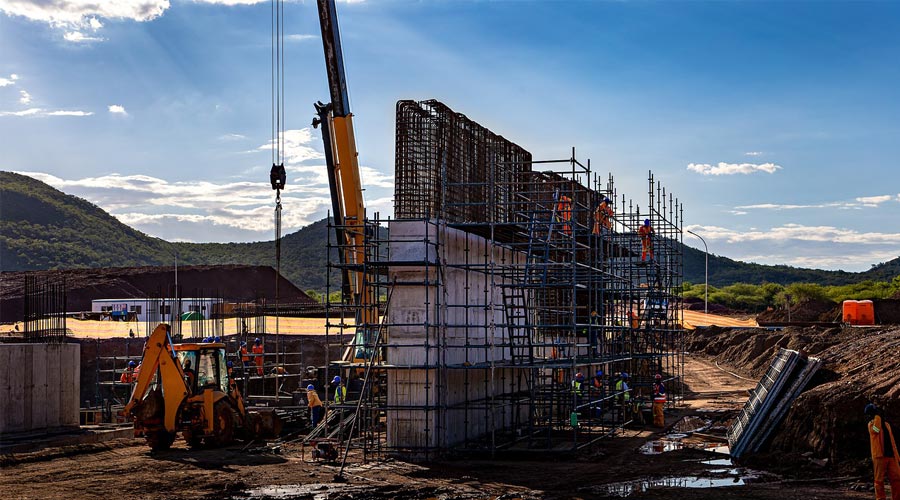Why carry out a
Technical Building Control?
Technical inspection of buildings is essential to ensure the safety of people, as well as the solidity, compliance and durability of buildings. It allows for the anticipation of all human and technical risks associated with the project (fire, earthquake, collapse, design flaws, etc.). It is also essential for guaranteeing the energy efficiency, environmental performance, earthquake resistance and thermal and acoustic insulation of the structure.
Mandatory for most new buildings, technical inspections are also frequently required by insurance companies. By identifying technical hazards at the preliminary design stage, they limit the risk of non-compliance and damage during construction and operation. They are therefore a key tool for risk management throughout the life cycle of a building.
Technical Building Conrol:
our services


In order to guarantee the reliability and quality of your structures, Apave Tunisia's teams offer technical inspection services for buildings covering:
- The structural integrity of buildings
- Personal safety
- Inspection of technical installations related to buildings:
- Electrical: high and low voltage
- Fluids: heating, air conditioning, plumbing, sanitary facilities, indoor gas installations, etc.
- Fire safety, automatic fire and gas detection, etc.
- Lifting: lifts, hoists, escalators, hoists, etc.
- Issuing technical opinions on products and processes
- Technical assistance
In this context, we provide assistance to the project owner in issuing provisional and final acceptance certificates by contributing to and signing the corresponding reports. We support you throughout your construction or renovation project in order to identify any anomalies and implement the necessary measures to remedy them. We use all applicable general techniques for technical inspections.
 Good to know
Good to know
Our complementary missions
at CTC
As defined in standard NT 30.267 (Pr NFP 03-100), Apave Tunisia:
- Carries out additional technical assistance tasks requested by the project owner (energy savings, operation of specific installations, accessibility for people with reduced mobility, etc.);
- Carries out expert assessments of existing structures with a view to monitoring renovation work;
- Ensures compliance with special or innovative processes;
- Carries out a wide range of structural tests in accordance with technical rules and standards;
- Contributes to ensuring that the project is consistent with the initial objectives for the building's solidity and safety by providing technical advice in a timely manner throughout the construction phases.
Your questions
about Technical Building Control
-
What is a technical building control?
A CTC, or Technical Construction Control, is a verification carried out by an independent body throughout a construction or renovation project. The purpose of the CTC is to prevent any technical risks that could compromise the structural integrity of the building (foundations, structure, framework, etc.) and the safety of people (fire safety, electrical installations, ventilation, etc.). It also aims to verify that the building complies with applicable regulations. -
Who controls construction?
In Tunisia, technical inspections of buildings are carried out by technical inspection bodies approved by the Ministry of Equipment, Housing and Infrastructure. Apave Tunisia is the only agency accredited by TUNAC (Tunisian Accreditation Council) according to standard 17020 for technical inspection of construction in Tunisia. -
When is a technical inspection of buildings mandatory?
Technical inspection of buildings is mandatory for:
- New constructions (buildings and civil engineering works),
- Constructions that have been subject to a declaration of works,
- Constructions that have been subject to an application for planning permission,
- Constructions that have been subject to an application for a building permit.
-
When should you call in a technical building inspector?
Technical inspection of buildings must take place during the design phase and before work begins, by reviewing the design and construction documents. This step allows our experts to draw up the Initial Technical Inspection Report (RICT), or DO. Technical inspection continues during the construction phase with site visits until completion. Before the buildings are commissioned and occupied, our experts draw up the Final Technical Inspection Report, or D6, to check the condition of the construction and assess the risks to users. -
Which structures are subject to technical building inspections?
A large number of structures may be subject to technical building inspections. This is particularly the case for:
- Public access buildings: shopping centres, restaurants, hotels, schools, hospitals, mosques, etc.
- High-rise buildings (IGH) or very high-rise buildings (ITGH);
- Buildings for tertiary use: offices, shops, etc.;
- Buildings for industrial use (factories, warehouses, etc.);
- Individual or collective residential buildings;
- Infrastructure and engineering structures: bridges, tunnels, wind turbines, maritime, railway or airport structures;
- ...
Why choose Apave Tunisia?

A team of experts at your disposal

Accreditation in Technical Inspection of Buildings

The quality of customer relations
Discover
our news
